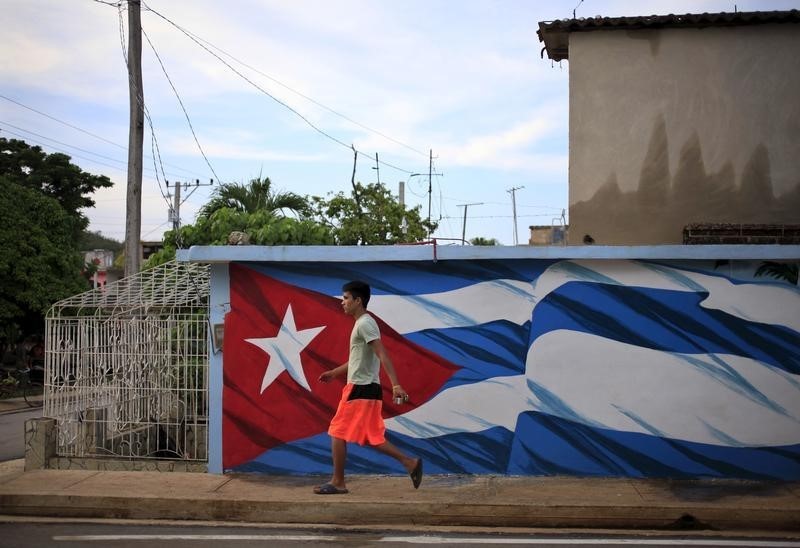By Jeffrey Dastin and Arshad Mohammed
NEW YORK/WASHINGTON (Reuters) - The United States wants to strike a deal that lets U.S. airlines schedule flights to Cuba as soon as possible, a State Department official said, ahead of the first aviation talks since March.
Delegations will convene in Havana on Sept. 28-29 as the countries inch toward normal relations after more than half a century of hostility that followed Cuba's 1959 revolution. The two nations restored diplomatic ties and reopened embassies this summer.
Both sides would like to reach an agreement, the official said, which could benefit U.S. carriers such as American Airlines Group Inc and JetBlue Airways Corp expecting demand and more revenue from Americans wishing to visit the communist-ruled island.
Key issues the sides must discuss are aviation safety and security, the official said. The U.S. Federal Aviation Administration and Transportation Security Administration must sign off on Cuba's operations, although cooperation is already under way to accommodate specialist groups that charter U.S. airlines to fly to Cuba.
The United States will also address the potential for Cuba's state-owned carrier, Cubana de Aviación, to share its flight codes with U.S. airlines and sell tickets on flights operated by U.S airlines, according to the official.
The official added that Cuba is aware it would be challenging for Cubana to fly to the United States. For one, individuals could claim its planes as compensation for their property stolen during the Cuban revolution.
Charles Rivkin, assistant secretary of state for economic and business affairs, will lead the U.S. delegation. The United States does not have a timetable for reaching a deal, the official said. No follow-up talks are currently scheduled.
On Friday the United States unveiled new rules to ease trade, travel and investment restrictions with Cuba that will allow some U.S. companies to establish offices in Cuba, expand banking and Internet activities and eliminate limits on the amount of money that can be taken there.
The changes, while significant, stop short of allowing across-the-board investments by U.S. companies or general U.S. tourism, activities banned under the U.S. trade embargo that only Congress can remove. The majority Republicans are unlikely to do that anytime soon.
U.S. citizens can solely visit Cuba for a dozen purposes, including cultural exchange, journalism and religious activities.
The Obama administration is pushing for an aviation deal before Congress lifts the embargo, the official said. That means airlines would let only authorized customers book flights to Cuba on their websites.
